14 December 2023
Kaitlin Buick is a PhD student exploring mRNA vaccines as an option for individuals with compromised immune systems who may not respond well to conventional vaccines.
Kaitlin works both in the Hermans Lab at the Malaghan Institute and the Connor Lab at Te Herenga Waka – Victoria University of Wellington. Her research focuses on how the immune system responds to mRNA vaccines. She’s focusing on a cellular pathway known as type 1 interferon, which activates in the early stages of a viral infection.
“One of the ways this pathway operates is by hindering the virus's ability to replicate and infiltrate other cells within the body,” says Kaitlin.
The mechanism is linked to the activation of hundreds of genes, resulting in the production of various proteins with diverse defensive effects. For example, some of these genes activate proteins which specifically target the virus's genetic material, preventing its replication.
“Some types of vaccines work by presenting a weakened version of a virus or bacteria. The type 1 interferon pathway plays a key role in the resulting immune response and ensuring the vaccine is safe and effective,” says Kaitlin.
“However, some people are born with an impaired or incomplete functioning of the type 1 interferon pathway. This heightens the need for preventative measures against infections in this population but also means some conventional vaccines can be challenging for them to tolerate.”
The aim of Kaitlin’s research is to contribute to the development of mRNA vaccines specifically tailored for individuals with deficiencies in this immune pathway.
She is collaborating with Dr Kuang-Chih Hsiao at Starship Hospital in Auckland and Professor JamesUssher at the University of Otago to create alternative vaccine options for immunocompromised children including for vital vaccines such as the MMR vaccine.
“In Aotearoa New Zealand, we find that impaired function of the type 1 interferon pathway can occur due variations in the genetic code. Although such variations are extremely rare globally, it is of particular importance for New Zealand and the Pacific as one of the rare variations have been found to occur more frequently in Western Polynesian populations, making this research increasingly important to improve health equity,” says Kaitlin.
“This research may also be applicable for other immunocompromised populations such as individuals going through chemotherapy or taking medications that alter their immune system.”
“It’s estimated that vaccines save around 3.5 – 5 million lives annually. I feel this is the biggest impact on medical health with the smallest individual effort.”
mRNA vaccines work by delivering instructions to cells in the body to make a small fragment of the virus. The cells in the body then use their own machinery to make viral proteins for the immune system to mount a response to.
“I’m investigating the effectiveness of the mRNA vaccine when the type 1 interferon response pathways are not active, as is the case with some immunocompromised populations. This will help us better design mRNA vaccines to become viable alternatives.”
Kaitlin is using a mouse model that lacks type 1 interferon responses to assess the result on the immune system after an mRNA vaccine.
“Vaccines are vitally important for global health. It’s estimated that vaccines save around 3.5 – 5 million lives annually. I feel this is the biggest impact on medical health with the smallest individual effort,” says Kaitlin.
“I want this option to be available to everyone, especially immunocompromised populations who are at most risk of being affected by infectious diseases.”
Kaitlin grew up in Masterton, attending Wairarapa College where she cultivated her love of science.
“I grew up on a farm where I was always surrounded by different types of animals and plants. I was curious about how living things work. I would always be building huts with my siblings using the materials we had on the farm,” says Kaitlin.
“One of my sisters went on to study science and inspired me to follow suit. I decided in high school that I wanted to do a biomedical science degree due to wanting to make a positive impact on human health. This was especially important to me due to seeing the impacts of different diseases within my own family.”
Kaitlin conducted her undergraduate degree at Victoria University where she became captivated by the workings of the immune system. She went on to do her Master’s in collaboration with the Malaghan Institute where she worked on understanding how specific immune cells called MAIT cells may be a potential target for mucosal vaccines. She started her PhD in 2022, supervised by Professor Ian Hermans and Dr Lisa Connor.
“I enjoy the process of understanding more about our immune system. It is so complex and at times it is difficult to piece things together but the potential impact that this research may have on human health keeps me going.”
Related articles
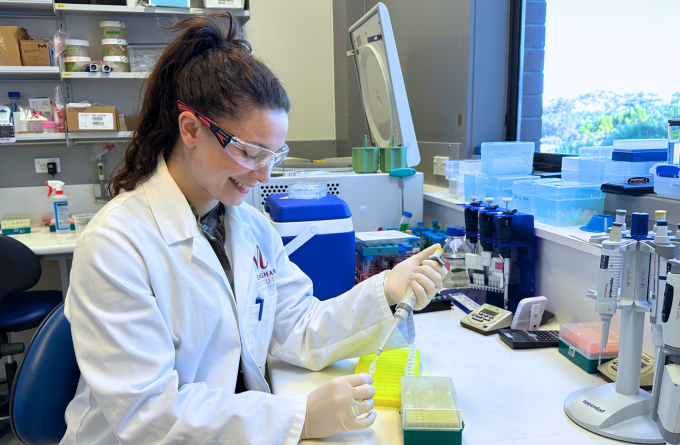
In Focus: Mapping the lung's fight – how the entire organ responds to infection
18 April 2024
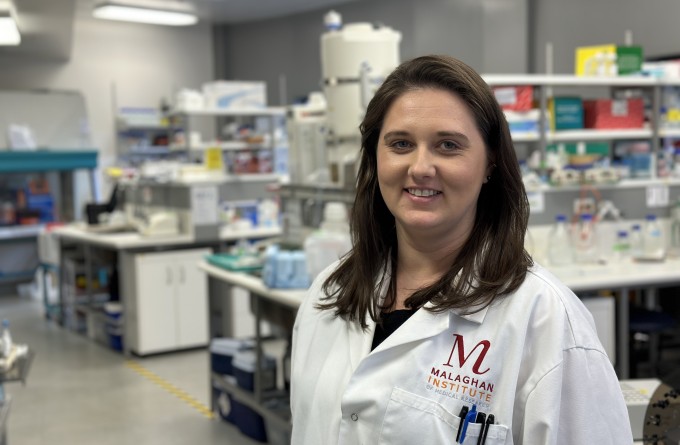
Malaghan and National Institutes of Health research receives prestigious award
5 March 2024
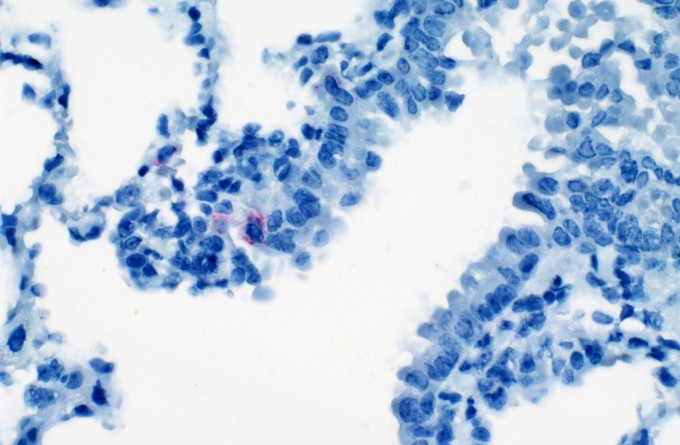
Scientists identify interferon-gamma as potential SARS-CoV-2 antiviral
13 December 2023
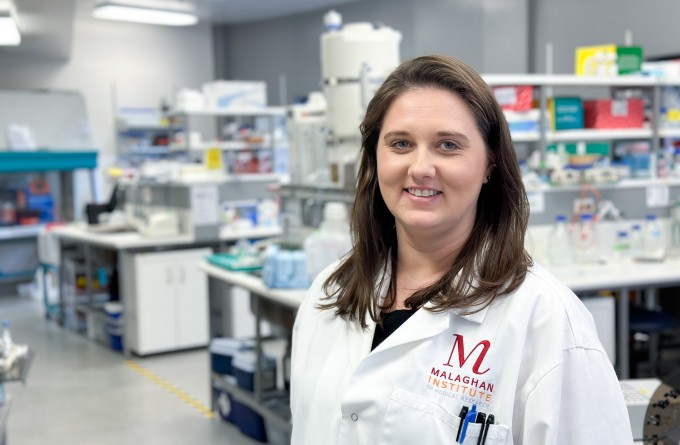
New research suggests hookworms could offer protection from severe Covid symptoms
14 August 2023
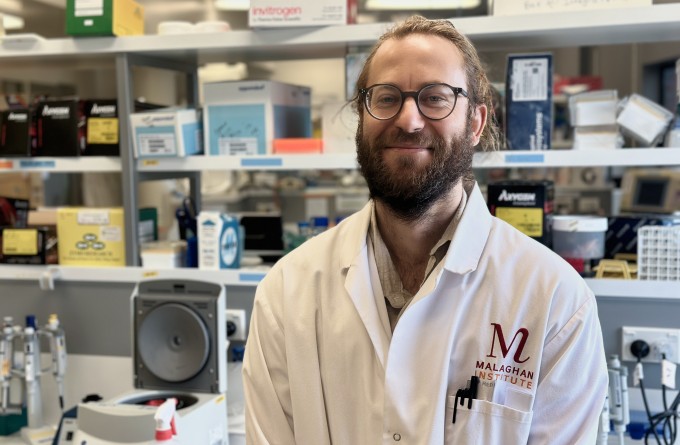
Scientific breakthrough harnesses mRNA technology to develop powerful malaria vaccine
21 July 2023
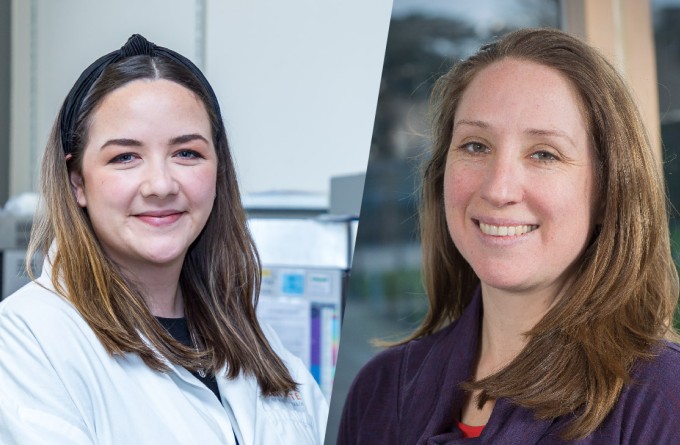
International collaboration to crack the code on the ageing immune system
31 May 2023
